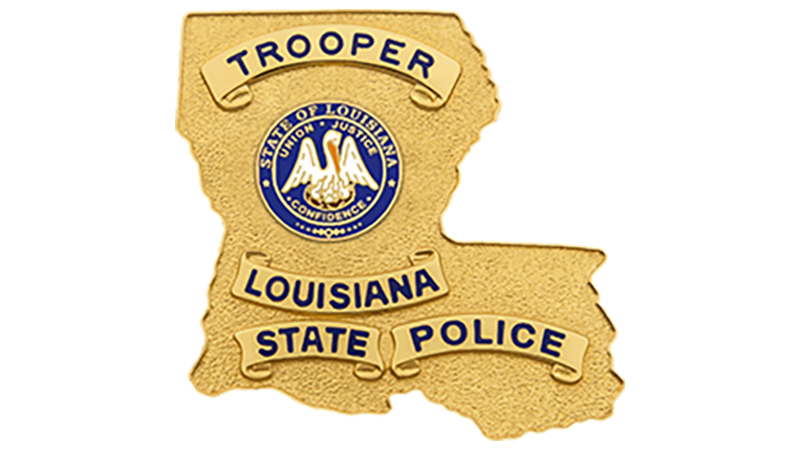GET HIGH ON LIFE
Published 12:00 am Saturday, August 5, 2000
Harold Keller / L’Observateur / August 5, 2000
This past Wednesday, my daughter, Ronny, asked me to accompany her on a trip to the Angola penitentiary to attend a hospice meeting. Not knowingmuch about the work of hospice, but afraid to miss something, I accepted the invitation.
Jamey Boudreaux, one of Ronny’s high school classmates, invited her to the meeting. He brought his class of Tulane graduate students who wereworking on their master’s degee in social work. Jamey is the executivedirector of the Louisiana Hospice Association and goes monthly to Angola to attend the inmate hospice program meeting.
On the way there, Ronny told me a little about hospice. She explained thatit’s a group of people who attend to the terminally ill. The program atAngola is on a volunteer basis, with about 25 members.
When we arrived, we were greeted by Assistant Warden R. DwayneMcFatteer, who supervises the program. It was obvious that his heart was100 percent in the program and that he had a deep concern and compassion for the volunteers.
He introduced us to Ronda Herzog who, two years ago, spearheaded the concept, training and formation of Angola Hospice, together with Carol Evans, a long-time hospice social worker.
Ronda, who now lives in Deer Harbor, Wash., is spending her time atAngola, overseeing the building of a chapel that the hospice volunteers wanted so they would have a place to pray and have funerals for the patients that die. Ronda helped to raise the money for the chapel anddonates her time. Meeting this giving lady was a blessing.We then met the hospice volunteers – many of them serving life. I knewtwo of the lifers and was surprised that they participated in the program.
(Keep in mind that these inmate volunteers know that their service to mankind will never appear on their records. In this way, it prevents themfrom volunteering for selfish reasons.)The nurse in charge of the meeting was Tanya Tillman, who is the volunteer coordinator and considered to be the heart and soul of Angola Hospice. I realized that she doesn’t have a job, because a job, in myopinion, is something you have to do. That’s called work. Tanya has aministry.
When we met the inmate volunteers, they all had their hospice T-shirts on, which read: HOSPICE (Helping Others Share the Pain in Correctional Environment).
Jamey and the Tulane students brought food, so we ate and fellowshipped with the men of Angola Hospice. Then we had a meeting.When Ronny asked me to go, I figured God wanted to use me to bless the group. I’ve never been so wrong in my life.One black man got up and shared how he was brought up in the projects, didn’t associate with many whites and, in fact, didn’t particularly care for thm. “Hospice showed me for the first time in my life what love andcompassion is. It’s made me look at my good side,” he said.Another volunteer, referred to as “Arizona,” got up and shared about how being in hospice gave him his daughter back after 12 years. She once hadnothing to do with her dad, but heard that he was in the program and came to visit him. She saw the change God made in his life and told WardenMcFatter that this was the first good thing her dad had ever done.
“Arizona” was tough-looking, but as he wiped tears from his eyes, you knew being of service to his fellow men had softened his heart.
There were many other touching testimonies, too numerous to mention, by the men of Angola Hospice.
Norris Henderson, an inmate for over 25 years, moderated the question and answer period. He handled his responsibilities in a professional manner.We met at 6 p.m. and it was now almost 10 p.m. I have been known to talkeven if I don’t have anything to say, but I felt like I had to express what God laid on my heart.
As I addressed the group, I said, “I’m sure that most of us who came to visit thought we had something to give. God showed us that it was a timefor us to receive.” The love, compassion, and peace that was felt in that room is impossible to explain.
I then told the Angola Hospice volunteers, “You have really found the true secret to living and that’s giving of yourself. I realize that you areincarcerated, but you have found freedom on the inside. We all, at onetime, have visions of greatness. You, gentlemen, have found the secret togreatness and that’s being a servant to all.”On the trip back home, I was amazed at how God works. I had to go toAngola to experience one of the most exciting times in my life.
HAROLD KELLER writes this column as part of his affiliation with the Get High on Life religious motivational group.
Copyright © #Thisyear# Wick Communications, Inc.Best viewed with 4.0 or higher




